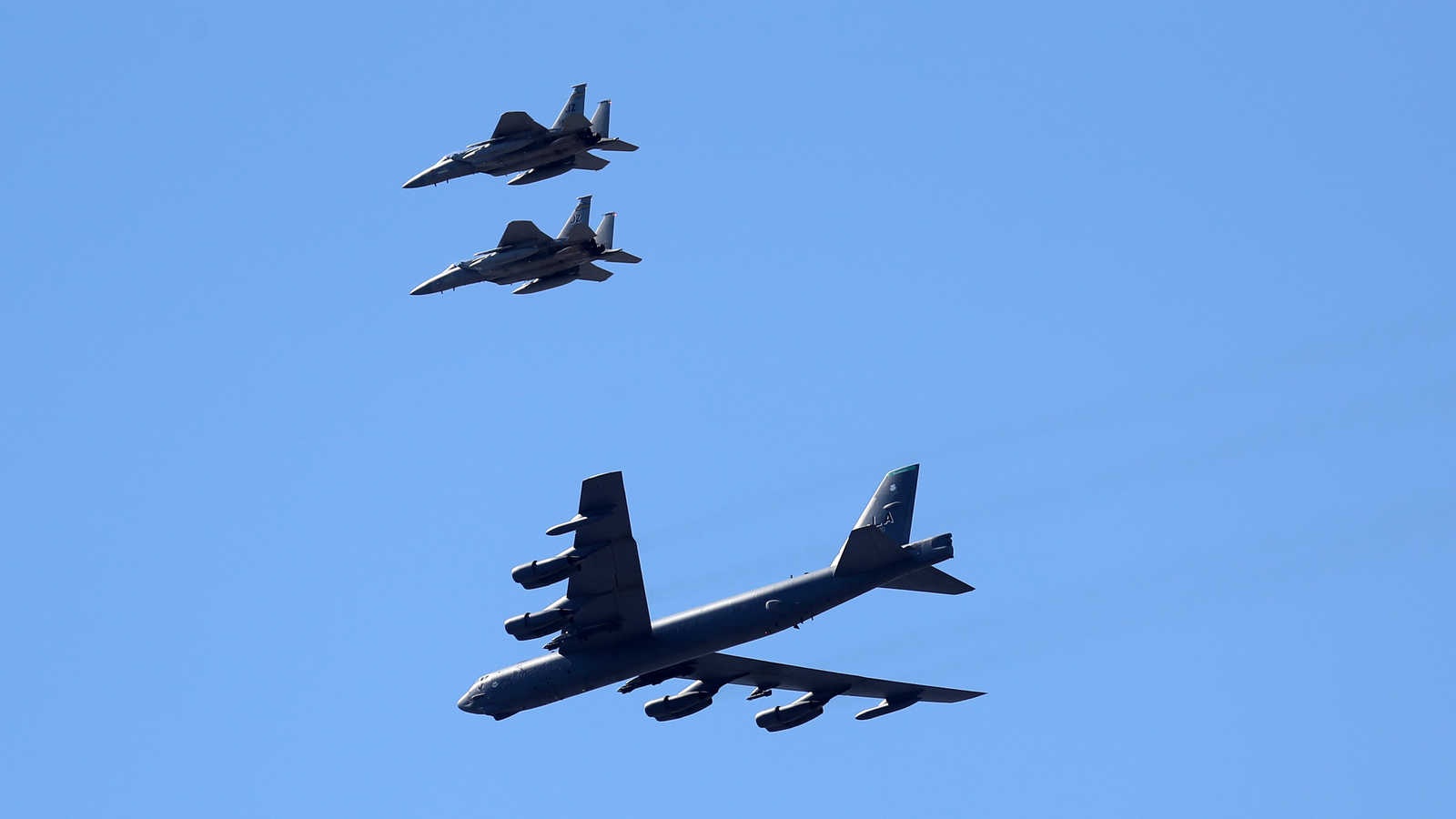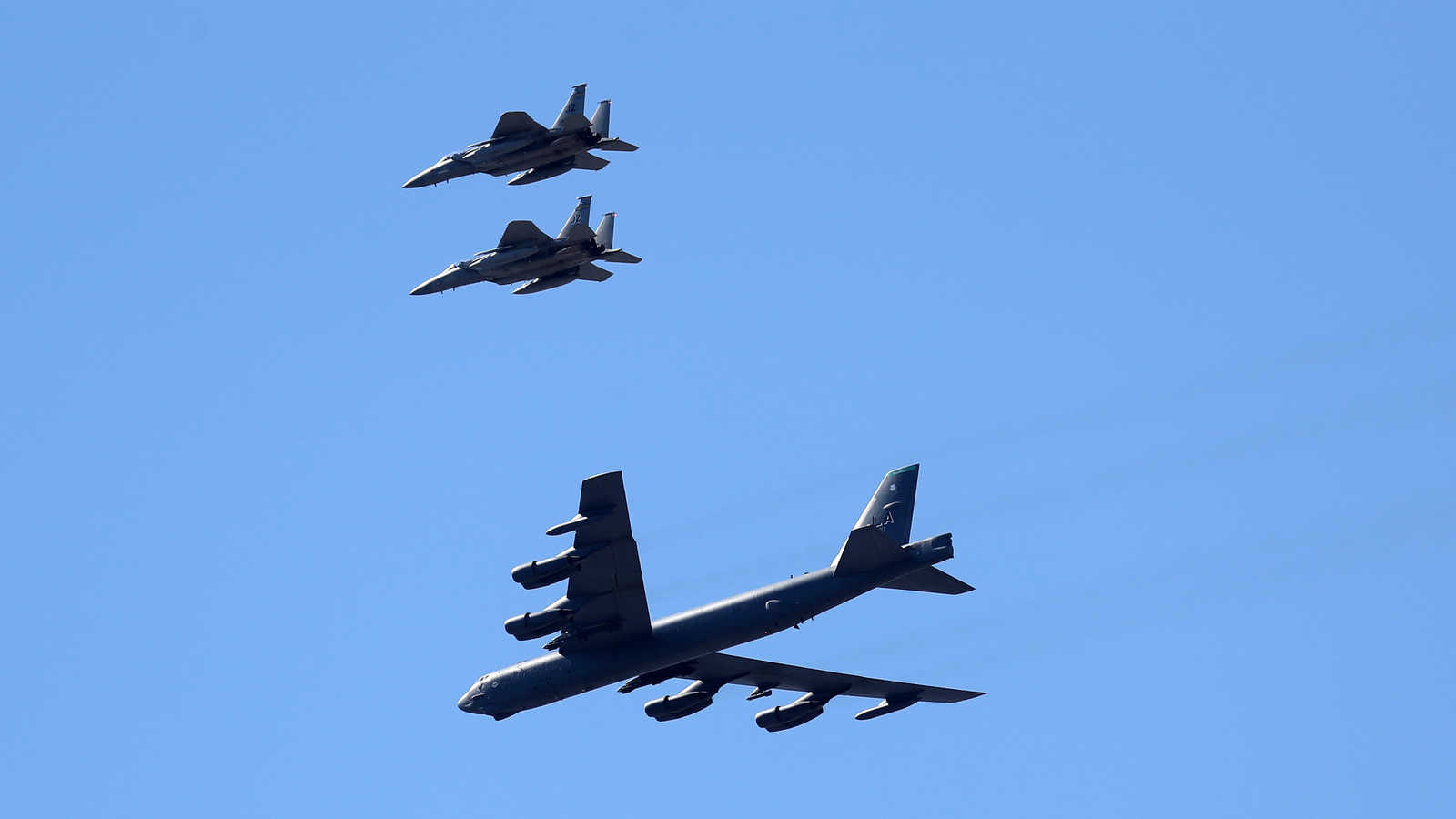The United States Air Force has sent a sixth sortie of nuclear-capable B-52 bombers over the Middle East.
The US Air Force dispatched another pair of long-range, nuclear-capable B-52 bombers over the Middle East on Tuesday as the presidential administration of Joe Biden looks to approach negotiations with Iran.
The sortie, which departed from Barksdale Air Force Base in Louisiana, is the sixth such round-trip flight since November and the first so far under the Biden administration.
Coupled with the recent deployment of an aircraft carrier strike group, a guided-missile submarine and two naval cruisers to the Gulf region, the air missions are meant to dissuade Iran’s leaders from carrying out threats to retaliate against American officials for the US killing of Quds Force commander Qasem Soleimani in Baghdad last January.
The broader show of force, which has included participation from Saudi Arabia, Jordan and Israel, also appears aimed at building the leverage for the new US administration ahead of potential negotiations with Tehran over its nuclear program.
Commander of US forces in the Middle East Gen. Kenneth “Frank” McKenzie has emphasized that the display is an act of deterrence, and that the United States does not seek conflict with Iran.

But at least one former Pentagon official has pushed back on the approach, arguing that the continuous deployment of heavy military assets such as the carrier USS Nimitz taxes Pentagon resources and offers no guarantee of security.
“McKenzie, like all the combatant commanders, has to fight to keep his resources,” another former defense official with responsibility in the region told Al-Monitor last year.
CENTCOM is signaling that the show of force is the best insurance policy it can provide to its personnel and partners in the region amid the most fraught American presidential transition in living memory.
“We do know that US policy is evolving with respect to Iran right now and the new administration will make some decisions here over the next while,” a US military official told a Defense One reporter accompanying McKenzie on his visit to the Middle East this week.
“I do know if we can continue to deter Iranian aggression … that it’ll give the policy-makers more decision space,” the official said.
The United States has accused Iran and its proxy forces of launching a number of attacks on its forces and partners in the region, including rocket barrages on sites used by international coalition troops in Iraq and a massive cruise missile strike on two Saudi Arabian oil production facilities in 2019.
On Tuesday, two blasts were heard over Saudi Arabia’s capital Riyadh in what appeared to be a successful interception of a missile. Yesterday’s incident came just three days after the Saudi military said it shot down a hostile target over the capital.
Yemen’s Houthi rebels have launched a number of missiles into Saudi Arabia in recent years in response to Riyadh’s military intervention against them in Yemen’s civil war. US officials have publicly presented evidence suggesting Iran has provided the Houthis with missile technology, but the rebels did not claim credit this week’s incidents.
The Donald Trump administration walked out of the multinational nuclear agreement with Iran in 2018 and deployed a “maximum pressure” campaign of economic sanctions hoping to force Iranian leaders to roll back their support for proxies in the region. Three years on, former officials have begun to question the success of that initiative.
The Biden administration has signaled it wants to rejoin the nuclear deal, and Iran’s government has responded positively. But President Hassan Rouhani has said talks over his country’s ballistic missile program and regional influence remain off the table, at least for now.
On Tuesday, Russia came out in support of Iran’s position that the United States must first relieve sanctions before Tehran returns to compliance with the agreement.
Hours later, France’s president lined up behind the United States, saying Tehran must return to compliance and cease provocations before the original signatories reengage on the agreement. It remains unclear which side will budge first.
 Eurasia Press & News
Eurasia Press & News



